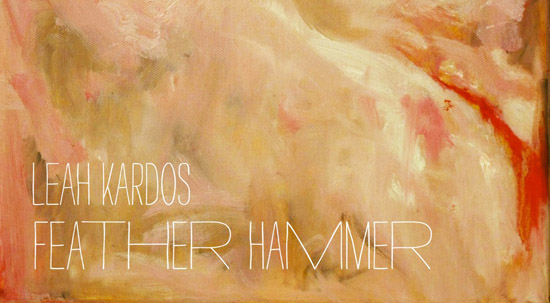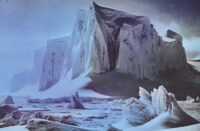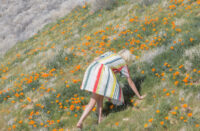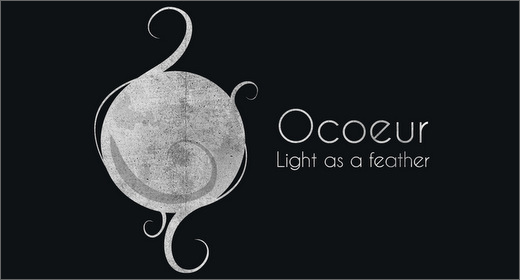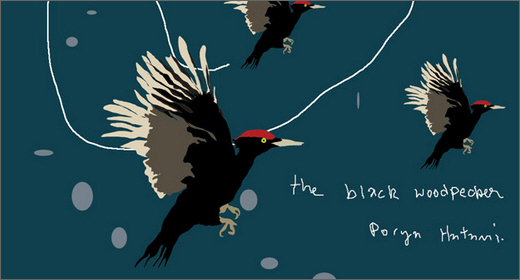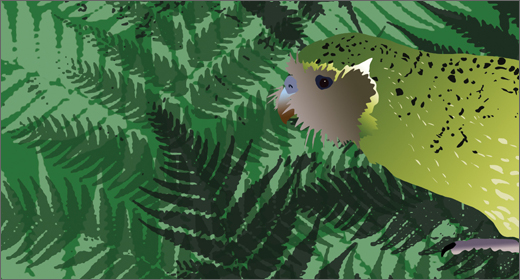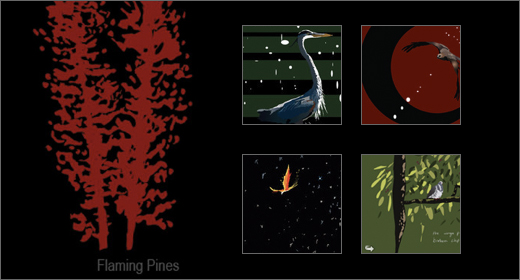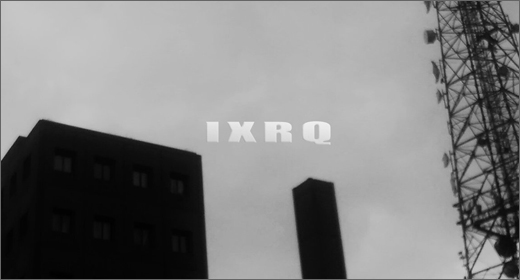Drawing influence from some of the twentieth century’s serious avant-guard protagonists, the obvious one being Cage with the use of prepared piano and the exploration of how context and sound collide to infer a narrative, but there are also hints of the minimalist Glass and perhaps Reich. This is nicely partnered by some really interesting and effective use of more electronica based ideas.
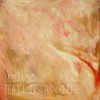
[Release page] Feather Hammer is the latest self released work by composer Leah Kardos. It’s a wonderfully understated and sublime collection of pieces centered around the piano in various guises and wrapped up snugly in layers of musique concrète, electronica and other soundscapey stuff. It has a DIY aesthetic which by rights should lessen the overall effect of the music, but on the contrary seems to somehow give it a sense of reality. It has that slight background hiss which is a home recording give away, and we’ve all heard bedroom efforts at ambient classical electronica crossover attempts which fall, frankly, short of the mark. This however is really something very much worth listening to.
Leah Kardos is an Australian born piano player and composer who now resides in Bedford, UK. She appears to be a very productive lady; currently studying for a PhD in composition, she can also be found lecturing in music technology, composing, orchestrating, arranging and performing. If you’re intrigued, check out her website, it’s good and has loads of information.
The piano is Leah’s first instrument, the thing I assume which provided her first route into the world of music and the first taste of what that world can be like. As a musician you will very often move through different instruments, they might move in and out of currency depending on your requirements, but the first instrument you spent time with will always be central to you, and hugely affects how you look at music and by proxy how you view the world to some extent. This album is the composers exploration of her relationship with the piano, as a source of familiarity and a way to communicate to the outside world. It draws influence from some of the twentieth century’s serious avant-guard protagonists, the obvious one being Cage with the use of prepared piano and the exploration of how context and sound collide to infer a narrative, but there are also hints of the minimalist Glass and perhaps Reich. This is nicely partnered by some really interesting and effective use of more electronica based ideas. Some of the rhythms that appear quite suddenly – in the track “Repeater” for example – are unexpected and sound like they could be from an Autechre track. In fact, whilst we’re speaking about influences, I can hear a definite early Warp Records vibe going on. I can’t quite put my finger on it, but I fancy she’s pretty familiar with artists like Aphex Twin, the aforementioned Autechre, Squarepusher et al.
Feather Hammer is a really engaging album. I listened to it exclusively on headphones, and the experience was pretty immersive. I’m really glad I came across it actually, as it’s the sort of thing that can be easily missed among the flood of music which abounds these days. This is a point touched on recently elsewhere on Igloo. I thoroughly recommend this album, it’s a contemplative experience that puts into perspective the reason we all love music in the first place, conjuring expression and emotion by subtle and experienced manipulation of sounds, note based and otherwise. It feels like the soundtrack to a film, not a big Hollywood film, but a really good non glitzy Indy film, probably black and white. I suppose this comes down to it being music which invokes feelings and suggests mood and setting.
Feather Hammer is out now from and available here.






